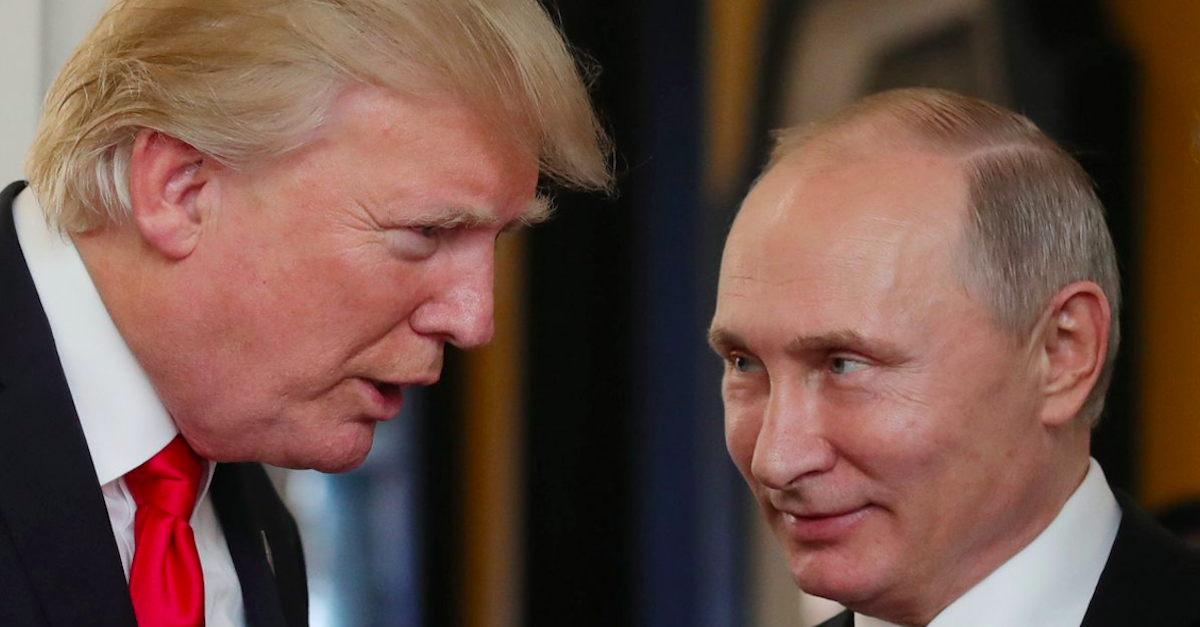
A bipartisan group of lawmakers on Tuesday called on President Donald Trump to launch an investigation into whether the Russian government played any role in the poisoning of Kremlin opposition leader Alexey Navalny. Under federal law, the formal request from the House Foreign Affairs Committee triggered a mandatory Executive Branch investigation that must be concluded within 60 days.
Navalny, an anti-corruption investigator who was one of Russian president Vladimir Putin’s most vocal critics, awoke from a medically induced coma Monday after being poisoned with Novichok in a Russian airport café last month.
Novichok is a military-grade chemical nerve agent that was developed in secret by the former Soviet Union during the latter half of the Cold War. It is the same substance that caused six illnesses and one death in Salisbury England in an alleged Kremlin attempt to assassinate former Russian spy Sergei Skripal. It is banned under the international Chemical Weapons Convention, which Russia signed in 1997.
“The poisoning of Mr. Navalny is particularly disturbing given that a Novichok agent was also used in a March 2018 attack on former Russian intelligence officer Sergei Skripal in Salisbury, England. In that instance, you determined that the Russian government was behind the attack in contravention of international law which in turn triggered sanctions against Russia under the CBW [Chemical and Biological Weapons Control and Warfare Elimination] Act,” wrote Chairman of the Committee Eliot Engel (D-N.Y.) and Ranking Member Michael McCaul (R-Texas) “If the Russian government is once again determined to have used a chemical weapon against one of its own nationals, additional sanctions should be imposed.”
Since the incident, President Donald Trump has condemned the Navalny poisoning, but rejected the notion that Russia or Putin was necessarily behind the assassination attempt (despite past poisonings like this).
“So I don’t know exactly what happened. I think it’s tragic, it’s terrible, it shouldn’t happen. We haven’t had any proof yet but I will take a look,” Trump said last week in his first public comments about Navalny.
Trump then shifted the focus away from the Kremlin and onto China, which is not suspected of participating in the attempt of Navalny’s life.
“It is interesting that everybody’s always mentioning Russia and I don’t mind you mentioning Russia but I think probably China at this point is a nation that you should be talking about much more so,” the president said.
On Friday NATO spokesperson Piers Cazlet said the attack was “horrific,” calling out the Russian president by name. “Time and again we have seen critics of the Putin regime attacked and threatened. Some have been killed,” he said.
Russia has refused to concur with the rest of the world that any foul play occurred, suggesting his symptoms may have been caused by a “simple lack of breakfast,” according to one of the nation’s chief toxicologists.
The lawmakers concluded by urging Trump to continue coordinating with U.S. allies in demanding that 1) Russia cooperate with the international investigation into the incident; and 2) hold Putin accountable.
“Finally, we urge you to continue to act in concert with our allies and partners to demand Russia cooperate fully with a thorough international investigation to be led by the Organization for the Prohibition of Chemical Weapons into Mr. Navalny’s poisoning,” they wrote. “Those responsible for this despicable attack must be held accountable, and Russian President Vladimir Putin must know that he and his cronies will not be allowed to violate international law with impunity.”
Read the full letter below:
House Foreign Affairs Committee Letter by Law&Crime on Scribd
[image via MIKHAIL KLIMENTYEV/AFP/Getty Images]